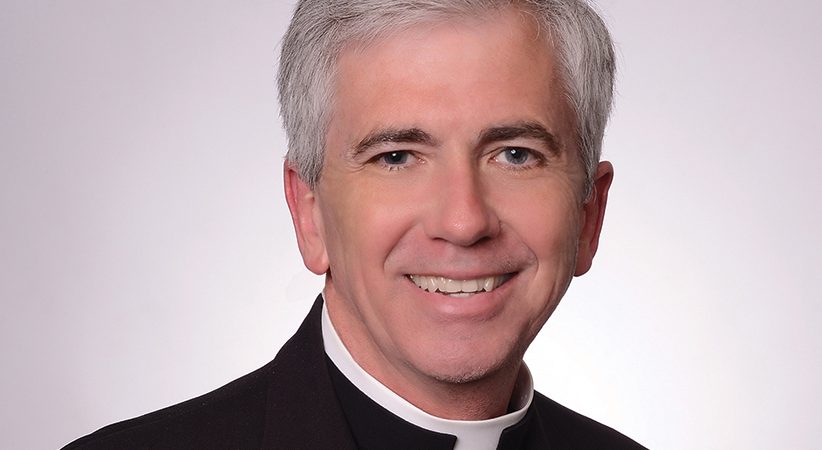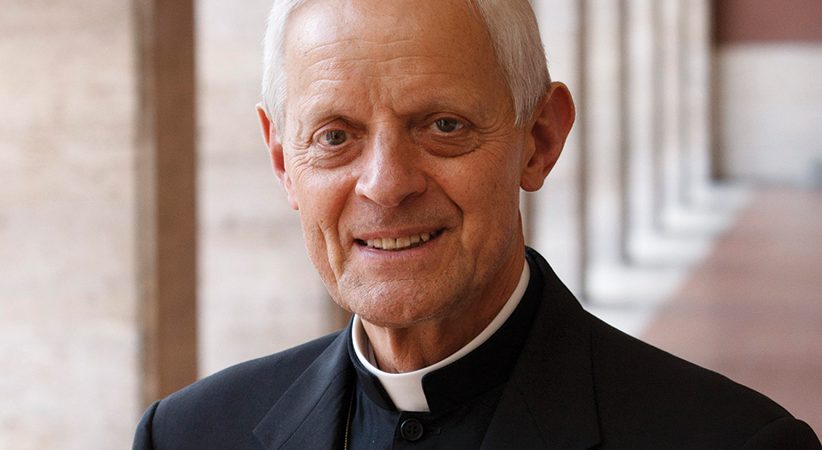The Other Side of a Transfer
Father David J. Bonnar Comments Off on The Other Side of a Transfer
One of the facts of life of being a priest is that, from time to time, we will be transferred. During the last 10 weeks, I have been living in transition. It all began with a phone call from the bishop informing me of my transfer. I am now writing to you from the other side of the transfer with a whole new appreciation for this experience.
Every transfer is like a dying experience. The mind and the heart must embrace a whole new attitude governed by the realities of letting go, detachment and goodbyes. After the phone call from the bishop, life changes immediately, even though one remains temporarily in the same place. Suddenly, one’s future in that place is greatly limited. One’s ministry in that portion of the Lord’s vineyard becomes terminal. As a result, every celebration or encounter with the faithful and staff becomes surreal.
When one has been in a particular assignment for a lengthy time, in my case 11 years, the process of letting go can be challenging. It is hard to love and then leave God’s people. If only it were as easy as flicking a switch or pressing a button. That, however, is unfair and unrealistic. As painfully awkward as this time is, one cannot run away from the flood of feelings that emerge with a transfer. While we are called to live out the divine institution of priesthood, we remain human beings prone to vulnerability and attachment to nostalgia.
It is hard enough to begin the process of letting go of one’s assignment, but this becomes all the more difficult as one begins to pack and is reminded again and again of previous assignments. In a certain sense, this whole process becomes a tug of war between grief and gratefulness.
But as the saying goes, “When one door closes, another door opens.” Grief and loss eventually give way to fresh excitement as one begins to prepare for the next chapter. Visiting the new assignment and meeting with the staff and faithful get the heart going. This heart-wrenching time of letting go becomes a time to begin anew.
I remember having a conversation with one of our retired priests who said he always enjoyed the anonymity of those first few months as a priest in a new assignment. He added that one can always enjoy the disclaimer at least for the first year of saying to rising issues, “I don’t know. I am new here.”
After 11 years in one assignment, I must confess that I have been waiting for this change. Stability of leadership can be a good thing; however, every transfer allows for the tilling of soil not just for the one being transferred but also for the flock left behind, not to mention the new flock. Admittedly, change is hard, but it can be so good.
Every change is pregnant with possibilities, to not only begin anew, but also to learn from previous mistakes. In my last assignment, I began fast and furiously. I was driven and the staff followed. At this point in my life, I have been trying to pace myself.
Since I first learned of the change, I have been embracing the following mantra, “Look, listen, learn, and love.” What has really enabled me to be true to this mantra is the fact that I no longer live where I work. The living quarters are in a separate house without any other activity. The parish offices are two miles away. I actually am a commuter now. This is a huge change that thankfully has yielded more silence and stillness in my life. The silence is golden. It truly feels like home. I can only hope and pray that the flock of my new parish feels at home too.
FATHER DAVID J. BONNAR, editor of The Priest, is a pastor of 16 years in the Diocese of Pittsburgh, where he has served in numerous roles. Follow and like The Priest magazine on Facebook.




